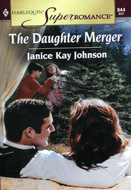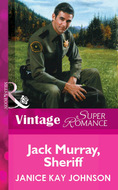Kitap dosya olarak indirilemez ancak uygulamamız üzerinden veya online olarak web sitemizden okunabilir.
Kitabı oku: «His Partner's Wife»
John wondered if Natalie would ask what he was thinking
She didn’t. Because she didn’t care enough? Because she didn’t feel she had the right?
Had she been the same with her husband? Or was he the one who’d taught her that what he didn’t choose to tell her was none of her business? The speculation seemed disloyal. Stuart Reed had been his partner.
The silence lengthened. John became aware of the quiet and darkness beyond the kitchen. He grabbed the edge of the counter. “Time to hit the sack.”
She did just what he was hoping to avoid. She touched him. “Are you all right?”
He couldn’t insult her by backing away. All he could do was wait until her hand dropped to her side. He sounded hoarse when he said, “Nothing a good night’s sleep won’t cure.”
Her expression relaxed. “I’ll see you in the morning.” Startling him, she brushed the lightest of kisses on his cheek. Then she left the room.
He stood frozen in her wake, conscious of the faint scent she’d left behind, something flowery that suited her.
Voice harsh and low, he said, “Damn, damn, damn.”
Dear Reader,
His Partner’s Wife was born out of the paranoia we all feel. (Come on, admit it!) One of the worst betrayals to us individually and as a society is a cop gone bad. Since I’ve been writing so much in the past few years about cops, it was perhaps natural for me to think of a creepy way one of them could use his power. I coupled his villainy with the story of a woman who, after her husband’s death, has to take a fresh look at her memories of him, understanding that he wasn’t the man she’d thought him to be. Bad enough to be widowed, but what if much of your life together had been a lie?
This story is the beginning of a trilogy, born because I had ideas for a number of stories that all had cops as heroes. If the cops were brothers, and had become cops because of a tragedy in their past, I had a whole, not just the parts. Interest sparked, I started to write.
I continue to write about police officers because their work holds all the drama, mystery, action and pathos so lacking in the everyday lives of, say, writers. They take unimaginable risks daily in every car stop, every domestic disturbance call. They’re heroes, and their motivations and emotions the stuff of novels.
Here’s hoping you find these brothers as compelling as I do.
Janice Kay Johnson
P.S. I love to hear from readers. You can reach me via www.superauthors.com
His Partner’s Wife
Janice Kay Johnson

This one’s for Mom, starting on a new stage of life. Your strength and independence have always been, and still are, my inspiration.
Contents
CHAPTER ONE
CHAPTER TWO
CHAPTER THREE
CHAPTER FOUR
CHAPTER FIVE
CHAPTER SIX
CHAPTER SEVEN
CHAPTER EIGHT
CHAPTER NINE
CHAPTER TEN
CHAPTER ELEVEN
CHAPTER TWELVE
CHAPTER THIRTEEN
CHAPTER FOURTEEN
CHAPTER FIFTEEN
CHAPTER SIXTEEN
CHAPTER ONE
DINNER TABLE CONVERSATIONS about blood-spatter patterns and other minutiae of crime scenes didn’t faze Natalie Reed. Her deceased husband had been a homicide detective who talked about his job as if everyone hunted killers for a living.
The abstract, she discovered on the day when she found a dead man in her own house, was not the same as a gory here-and-now.
Nothing had been out of the ordinary at work. Natalie sold advertising space for the Port Dare Sentinel, a daily newspaper. The job would be easier, she suspected, in a larger city. Port Dare boasted fifty thousand citizens, but was relatively isolated on Washington’s Olympic Peninsula. Tourists from the urban areas around Seattle or Tacoma had a two-hour drive to Port Dare to catch the ferries crossing the Strait of Juan de Fuca for Victoria, British Columbia. Instead of being a suburb to a larger city, Port Dare stood alone, which was why it had a small-town atmosphere. In other words, you constantly tripped over your neighbor’s toes.
Today’s challenge had been persuading the annoyed owner of a sporting goods store that he’d be making a mistake to quit running his regular advertisement in the Sentinel out of ire because the editor had endorsed his opponent for the city council.
“Why the hell should I let you have my advertising dollars?” he’d asked sulkily.
“Because you get more bang for them with the Sentinel than you would anywhere else. Our rates are better than good. We’re focused—our market is yours. Your customers read the Sentinel.” She’d smiled wryly at him. “Come on, George. You were a businessman before you were a politician. The editor couldn’t make his decision based on advertising dollars, you know that. We would have had an unhappy advertiser whichever one of you we endorsed.”
He grunted and grumbled, but in the end grudgingly ran his standard insert in the Sunday edition.
It had been a close call, Natalie knew, so she was still metaphorically patting herself on the back when she parked in the driveway at home and locked the car. Thanks to her good mood, she felt only a tinge of annoyance at the fact that she couldn’t pull into the two-car garage. Stuart had filled the garage with so much junk long before she’d married him that not even her compact would fit. She kept meaning to do something about it, but Stuart had never thrown anything away, which meant she would be spending the next five years going through boxes of old magazines or clothes and drawers full of such useless flotsam as old receipts and stamps torn from envelopes. The garage was a low priority.
The house was quiet and fragrant with the smell of freshly baked bread. She had timed the bread machine to finish just about now. A warm slice would taste good with the leftover minestrone soup she planned to have for dinner.
First she intended to get out of her panty hose and suit and into jeans and wool-felt clogs. Dropping her purse on the entry hall table, Natalie headed up the stairs.
The house was a twenty-year-old tri-level: living room, kitchen and dining room on the ground level wing, a family room, unused by her, extra bedroom and the utility room down a few steps in the daylight basement, and above it the master bedroom and bath, her sewing room and Stuart’s den. Truthfully, Natalie still thought of the whole house as Stuart’s because he’d been so settled in it before their brief marriage. She had been trying very hard these past months to make first small changes and then larger ones that would put her stamp on what was her home until she chose to sell it.
The carpet muffled her footsteps. Taking out her hoop earrings, she started past her sewing room before pausing in exasperation. Darn it, the cat had obviously napped in the middle of the fabric and had torn the tissue pattern pieces she’d laid out and pinned. Clumps of long black fur clung to the material, too. Her fault—she’d meant to shut the door and forgotten.
Or had she? Natalie frowned. Strange. She’d have sworn… She gave her head a small shake and philosophically accepted reality. The door was open. The cat had undeniably napped, leaving plenty of trace evidence. Earrings in hand, she continued down the hall.
Natalie was two steps past the den before a wave of shock hit her. Terror smacked her next. She froze, her own accelerated heartbeat as loud as a snare drum through a thin wall. Had she really seen a man lying in Stuart’s den? With his head…
She didn’t want to think about his head.
Through the half-open door she could see into her bedroom. It lay still and empty, just as she’d left it. The bed was made, the pinwheel quilt without even a depression left by the cat. The closet doors were closed. What she couldn’t see was what lay—or stood—behind the door: her dresser, the second closet that still held some of Stuart’s things, the doorway to the master bath. Somebody could be in there, waiting, listening to her heartbeat, her choked breathing.
Somebody could also be hidden in the den with the body or in her sewing room, or downstairs, closing off her escape from the house.
Forward or back? Her mind felt as paralyzed as her legs. Think! she told herself fiercely.
The master bedroom door had a lock, if she dashed in.
A dumb little lock that she’d picked herself with a hair pin.
Back, then, she decided.
Natalie eased slowly down the hall, trying to watch the three partially open doorways and the downstairs at the same time. She checked only briefly at the den. Yes, a man lay facedown on the gray carpet, and the back of his head seemed to have…well, imploded. She shuddered.
This door, too, blocked her sight line to part of the room. She did not linger for more than the brief second she needed to be sure she hadn’t imagined the horror. Down the stairs. There she clutched the banister, white-knuckled, and scanned the living room and what she could see of the dining room. The familiarity comforted and jarred at the same time. If somebody had been murdered upstairs, why hadn’t the downstairs been tossed? If he was hiding in the kitchen, why was the morning newspaper open precisely where she’d left it on the table after breakfast? Why was the bread machine beeping as though nothing was wrong?
Natalie recognized that she was on the verge of hysteria. Now, she told herself, and ran for the front door. She was sobbing as she struggled with the knob, finally winning the right to stumble out. Slamming the door behind her, she raced to the car, grateful—oh, so grateful—that it wasn’t parked in the garage. She had the presence of mind to check the back seat before she fell in and locked all the doors. Cell phone…oh, God. It was in her purse, which sat on the hall table. There was no way she was going back in.
On another lurch of terror, she realized that, unfortunately, the car keys were in her purse, too.
She did not want to get out of the car. She also had no choice.
Her nearest neighbors on each side didn’t get home from work until nearer seven. The new people on the corner, she didn’t know. The Porters. She grasped at the thought of the couple, he just past retirement age, she the perpetual housewife. They’d be home. They were always home, nosy and dissatisfied with their neighbors’ conduct. Their ranch house with manicured lawn and unnatural edging of bedding plants was across the street and two doors down.
Natalie took slow, deep breaths, made herself unlock the car door with shaking hand and get out. Nothing moved behind the windows of her house. Whoever had been there was surely long gone.
At least, one of them was long gone. The other… She swallowed dryly. The other would leave in a body bag.
She didn’t quite run to her neighbors’, but she came close. Their doorbell gonged deep in the recesses of the house. For a moment, the silence made her fear the Porters were, unbelievably, not home. How could that be? Everyone in the neighborhood swore they never went out, even to grocery shop, although Mrs. Porter grumbled about Safeway’s produce and Thrift-way’s service, just as she did about the mail carrier—who threw the mail to the back of the box—and the new people on the corner who didn’t mow often enough. Natalie didn’t know what the Porters said about her. Right now, she didn’t care.
Please be home.
Above her heartbeats she heard a footstep, and then the rattle of a chain. Trust the Porters to bother, in a town that had yet to have a serial killer going door to door.
But there was that dead man in Stuart’s den.
The door opened; Mrs. Porter peered around it. The suspicion altered instantly and the door swung wider. “My dear! What’s wrong?”
“I…” For all the world, Natalie couldn’t seem to get further. Her mouth only worked.
Mrs. Porter, miraculously, drew her in and locked the door behind her. “Come in here and sit down,” she said firmly. “There you go.” She steered Natalie into the living room, eased her into a wing chair and patted her hand. “Can you tell me now?”
“What is it?” Mr. Porter asked from the doorway. He looked stooped, his hair whiter than Natalie remembered. It seemed as though he’d aged ten years in the one he’d been retired.
“Hush,” his wife said. “Give her a minute.”
“I…” Stuck again, Natalie closed her eyes. Big mistake. As though her mind had snapped a digital photo available for instant review, there he was. White bits of bone and brown hair matted with blood. Gray tissue. Her stomach heaved and she pressed a hand to her mouth.
“You’re ill.” Mrs. Porter half rose.
“No.” Natalie swallowed. She could not give in to the nausea. Not yet. “I…I just got home from work. And there’s somebody in my house.” Above their twittering, she finished. “Somebody dead.”
They were amazingly kind and efficient. Mr. Porter called the police. Mrs. Porter wrapped an afghan about Natalie’s shoulders and vanished briefly to return with a cup of tea. The warm, sweet brew settled her stomach as nothing else could have. Her neighbors waited with her, Mr. Porter stationed at the front window.
A color commentator, he peered through the crack between the drapes, announcing the arrival of a squad car. “No, two,” he corrected himself. “They’ve gotten out and they’re circling your house. Going in.”
Natalie pictured the uniformed officers, guns drawn. What if she had somehow imagined the corpse in Stuart’s den? No. She couldn’t have. She hadn’t known that was how a skull would look if bashed in. She wished she could have continued in blissful ignorance.
“There’s a plain car now,” her neighbor continued.
Sipping her tea, huddled in the afghan, comforted by the delicate, papery touch of Mrs. Porter’s hand patting her every few moments, Natalie saw the scene through his eyes: two big men in suits conferring with the patrol officer who had come out of the house. Both disappearing inside briefly, then reappearing. Glancing down the street, spotting the Porter’s house. She knew before the knock when they arrived on the doorstep.
Please, please, let them be friends, she prayed. Not strangers.
Most of all, she quite fiercely wanted John McLean. He’d told her of Stuart’s death, carried one corner of her husband’s coffin, scraped out the gutters on her eaves last January, painted the house this July. He was quiet, soft-spoken, solid, her bulwark. He had been Stuart’s partner and, she supposed, was watching out for her from a sense of obligation to her husband rather than from real friendship for her. Nonetheless, she couldn’t imagine what she would have done without him this past year. She wished she had told Mr. Porter to ask for him.
But Natalie knew that, even if she had thought of it, she wouldn’t have asked. She never called John, except a time or two to suggest he bring his children to dinner. Natalie refused to be the stereotype of a lonely widow, the kind of woman who needed a man at her beck and call, or at least wanted one. Her pride barely let her accept his help when he offered it.
The doorbell rang, and Mr. Porter went to let the officers in. On a rush of relief almost painful in its intensity, Natalie recognized the slow, deep voice of Stuart’s former partner before he filled the entry to the living room. At about six feet, John McLean wasn’t unusually tall, but his shoulders were broad and his build muscular. Mid-thirties, he kept his russet-brown hair short, as befitted a police officer. His face was pure male—not handsome, in fact undistinguished, she had always thought, except for compelling eyes.
“Natalie!” Gaze locking on her, he came straight across the room as if nobody else was here and crouched in front of the chair. Taking her hands, he said roughly, “You’re all right.”
“Yes.” She sounded tremulous and was embarrassed by the weakness her voice gave away. “Is whoever did it gone?”
“Afraid so.” His eyes were bluer than she’d realized. “We recognized the address from dispatch and burned rubber getting here. Who the hell got himself dead in your house?”
We. Of course he wasn’t alone. She tore her gaze from his to see another friend beyond his shoulder.
“Geoff.” She tried a smile. “I’d forgotten you two were working together.”
Perhaps ten years older than John McLean, Geoff Baxter was nearly of a height with John and perhaps a little broader, his waistline thickening and his hairline thinning. He and Stuart had been partners back in their patrol days, and had remained friends until her husband dropped dead of an unexpected heart attack at forty years old. Like John, Geoff had stayed in touch since Stuart’s death, even going so far as to offer to haul that “crap” out of the garage so she could use it. He’d wanted to install an electric opener, too, so that he wouldn’t have to worry about her.
She doubted even his darker worries had included a corpse inside her house. Natalie gave a shiver.
“You’re in shock,” John said abruptly. “I hate to ask you questions, but I have to.”
“I’m okay.” This smile was slightly more successful. “Really. I just had the daylights scared out of me.”
He squeezed her hands hard and stood, stepping back. Not only physically—he assumed an air of remoteness. “Tell us what happened.”
Mrs. Porter, still hovering, suggested they sit and offered coffee, which both accepted. After she’d brought in a tray, John thanked her and asked if they could speak to Natalie alone. With thinly disguised disappointment, the Porters withdrew.
Natalie took another sip of her tea. Both men had taken out the notebooks ubiquitous to police officers and held pens poised. Their expressions were still sympathetic, but also intent, razor sharp. This was their job. Natalie felt a chill at the realization. Suddenly they had ceased being friends and become detectives who, by nature, were suspicious of everyone.
Including her.
“I got home from work, parked in the driveway—”
“What time?” Detective Baxter interrupted.
She remembered looking at her watch. “5:35—I noticed before I got out of the car.”
Pens scratched on paper.
She described events: unlocking the front door—yes, she was sure it had been locked—setting down her purse on the hall table and going straight upstairs. The kitchen and living room had looked just as she’d left them that morning. She told of noticing the sewing room door open, then actually making it a couple of feet past the den before her brain accepted what her eyes had seen: a dead man in Stuart’s den. The tale of her flight felt ignominious, but she also knew she’d been sensible.
“You didn’t set foot in the den?” John McLean asked.
“No. I was afraid…” She clutched the afghan tighter against another shiver and finished softly, “Somebody might still be in the house. Besides, I could see his head. I knew he couldn’t be alive. My checking his pulse wouldn’t have done any good.”
“You didn’t recognize him?”
“I couldn’t see his face from the doorway. It never occurred to me that I might know him. I thought…” She didn’t know what she had thought. “That he must be a burglar or something.”
“Very likely.” John didn’t sound satisfied. “Two of them may have had a quarrel.”
“But why my house?” Was she asking them, or the Fates? “Stuart’s stereo is nice, I guess, and a burglar could have that big-screen TV with my compliments, but they’re both still there. I don’t know if anything was touched.”
“The scumbag might have panicked after bashing in his partner’s head and fled. Or run when he heard you opening the front door.”
“But how did he get in? And out?”
“The side door into the garage was unlocked.”
“But…” Disturbed, she looked from face to face.
“I always keep it locked. The one from the garage into the house, too. I’ve hardly set foot into the garage in weeks!”
“Neither door had very good locks.” A frown furrowed John’s forehead. “I should have replaced them for you.”
“You couldn’t possibly have predicted that anything like this would happen. Or that anybody would want to break into my house at all. Beyond his stereo system, about all Stuart had was the house and, gosh—” she waved her hand vaguely “—treasures like ten years of Field & Stream and Sports Illustrated packed in boxes. Totally intact, no issues missing.” Stuart had made a point of telling her that when he caught her about to recycle a copy of SI. He’d looked at her as if she were an idiot when she ventured to ask why he was keeping them all. “Heaven knows the house doesn’t exactly shout money,” she added now.
John grunted. “It’s a decent place in a decent neighborhood. These days, everybody has electronic equipment. Our Port Dare criminals specialize in stuff that’s easily turned over. None of them would know a piece of genuine artwork from a reproduction if it was labeled. Jewelry is always good, and I’m sure they would have hunted in your bedroom if everything had gone according to plan.”
“But the den?” Why was she arguing? She wanted murderer and victim to be common burglars, having nothing to do with her. Still… “Stuart’s computer is dated.”
“You might have had a laptop tucked away in there, a pager, an expensive calculator.” He shrugged.
“Yes. I suppose.” Now she was the one to feel dissatisfied, but it took her a moment to analyze her unhappiness with the scenario.
Why wouldn’t two burglars have immediately unplugged and taken the obviously expensive television and stereo equipment before exploring further? Her sewing machine was a fancy, electronic model that did everything but wash the dishes. Wouldn’t they have considered it worth taking? Besides… Now the discontent stirred anew.
“The cat had been napping in there.”
“What?”
She saw that she’d startled both men.
“It must not have just happened,” Natalie explained, thinking it through as she went. “I shut the door to my sewing room last night. When I got home today, that door had been open long enough for the cat to have taken a nap on the fabric I’d laid out in there. And Sasha wouldn’t have relaxed enough to take a nap in the open unless strangers were long gone. Which means I didn’t scare him away.”
Geoff Baxter looked doubtful at her logic.
John frowned thoughtfully. “The coroner hasn’t arrived yet. She’ll be able to give us a time frame.”
“I suppose it doesn’t matter what time he was killed.”
The two men stirred.
“I know it does to you,” Natalie conceded. “To your investigation. But to me… Actually, I’d rather think he wasn’t still in the house when I got home. The idea that he was standing behind one of the doors, listening to me, maybe even watching…”
John half rose to his feet, then seemed to force himself to sit back down. His face was grim.
Natalie hunched inside the afghan. “That gives me the creeps,” she concluded simply.
John made a gritty sound and slapped shut his notebook. “Damn it, you’re coming home with me tonight.”
She wanted nothing more, but her pride, so important to her, insisted she protest. “I have friends I can stay with.”
“Yeah, and I’m one of ’em.” He stood. “I’ll see if I can bail out your toothbrush and drop you at home right now.”
“But I can drive.”
“No.” His pointed gaze took in her knotted fists and the shiver she couldn’t hide. “You’re in shock. Mom’s with the kids. She’ll enjoy babying you.”
Ridiculous to feel disappointed. Of course he wouldn’t stay with her. He had a murder to investigate. She knew the drill: he would probably work for twenty-four straight hours, canvassing neighbors, supervising crime scene technicians, following up on the tiniest leads. The older the trail, the less likely that a murderer would be caught, Stuart always said. Homicide cops did not drop an investigation to take the night off and pat the little woman’s shoulder.
“I…that’s nice of you, but shouldn’t you ask your mother?” Natalie had only met Ivy McLean a handful of times, the first at Stuart’s funeral. John was divorced and his two kids lived with him. His mother must be baby-sitting tonight.
Geoff cleared his throat. “You know Linda will give me hell if I don’t bring you home with me.”
Natalie doubted his wife would go that far. The two women were casual friends because of their husbands, but they had so little else in common, they’d never progressed beyond the occasional invitation to dinner.
A tiny spark of bemusement penetrated the numbness she’d wrapped around herself as snugly as the afghan. “I do have women friends who can run me a hot bath and tuck me in. Really, you don’t have to…”
John’s hard stare silenced her. “Yes. I do. I’d rather know where you are.”
Because she was a suspect in a murder investigation? The thought shook her. John couldn’t really believe even for a second that she would do something like that, could he?
“Yes. All right,” she said, sounding ungracious but too discombobulated to figure out what woman friend would actually have a spare bedroom without putting a child out. She would have to explain, too, listen to exclamations of horror, perhaps endure avid curiosity. Ivy McLean was the mother of not just one son in law enforcement, but three. She would have heard it often enough before to imagine the scene without wanting the details. Natalie didn’t like the idea of putting out a near-stranger, but if she just took a hot bath and went straight to bed, she didn’t have to be much trouble.
“What else do you need?” John asked. “Are you on any prescriptions? What about a nightgown or clothes for morning?”
Morning would be Saturday, and she wouldn’t have to work, thank heavens.
“My purse,” she said, explaining where she’d dropped it. “The middle drawer in my dresser has jeans, and T-shirts are in the one below that. I left a sweater draped over a chair in my bedroom. Nightgowns are in the top drawer.”
“Underwear?”
She could rinse out the ones she was wearing. But she’d sound so missish if she suggested that, Natalie tried to match his matter-of-fact tone. “There’s a small drawer on top next to the mirror.”
“Good enough.” John left to go fetch her things. He and Geoff had a brief discussion she couldn’t hear at the door. A moment later, Natalie heard Geoff telling the Porters he needed to ask them a few questions.
In the living room, they sat side by side on the couch, Mrs. Porter clutching her husband’s hand. She sat very straight, a dignified, tiny woman whose dark hair was whitening in streaks, her husband a tall, thin man whose color was none too good. Her eyes were bright, his dull. Natalie remembered guiltily that she’d heard something about bypass surgery a few months back. Had anybody in the neighborhood brought meals or even just expressed sympathy? Their kindness today made Natalie feel terrible about the way she’d shrugged off the casually mentioned news.
Geoff’s questions were routine. Had they seen or heard anything out of the ordinary? Cars they didn’t recognize?
Shaking her head, Mrs. Porter said, “We grocery shopped this morning, then had lunch.”
So they did actually go out.
“This afternoon Roger mowed the lawn while I deadheaded the roses. I don’t believe a car passed the entire while. Did you see one, dear?”
He frowned, giving it careful thought. “No. No, I didn’t notice one.”
“Then we lay down for a quick nap,” his wife continued. “I’d just begun thinking about putting dinner on.”
Geoff thanked them gravely and closed his notebook. Natalie carefully folded the afghan and laid it on the arm of the chair.
Standing, she smiled even as she felt the hot spurt of tears. “You’ve been so kind. I don’t know what I would have done if you hadn’t been home. Please, let me know if there’s ever anything I can do for you.”
“Oh, my dear!” Mrs. Porter stood and came to Natalie, taking her hand, hers dry but surprisingly strong. “We’ve wished we could help you since your husband died! All by yourself in that big house. You come see us anytime.” She turned a commanding gaze on the detective. “You will let us know when you catch the man who did such an awful thing, now won’t you?”
“It’ll be in the newspapers,” he promised.
“Assuming you do catch him,” she said acerbically, sounding like her sharp self for the first time tonight.
Geoff’s expression became wooden. “We’ll do our best, ma’am.”
“See that you do.” She gave Natalie’s hand a last squeeze. “Warm milk does help you sleep.”
“I’ll remember that.” Natalie was teary again as Geoff escorted her out. She must still be in shock. She wasn’t usually so emotional.
“We will catch him,” Geoff promised as they crossed the street. “Count on it.”
“I know you will.” Natalie paused on the sidewalk in front of her house and gazed at it, wondering if it would ever seem familiar and safe again. She felt again the sense of wrongness, and this time, it raised goose bumps on her skin. She rubbed her forearms.
“I only hope you arrest him soon. It’s going to give me the creeps to go home, wondering why they were in my house and whether he could get in again.”
“Maybe you shouldn’t go home.” Frowning, Geoff held open the car door for her. “Until we figure out for sure what they were after.”
She liked the way he worried about her. Even if his concern, too, was for Stuart’s sake.
“Yeah, but I don’t want to develop a phobia about my own house.” Natalie sighed and climbed into the passenger seat of the dark blue car. “We’ll see how it goes.”
He nodded, as kind in his way as the Porters had been. Voice gruff, he said, “Just remember, there’s a fine line between bravery and idiocy. Don’t push yourself to do something you’re uncomfortable with.”
“I won’t,” she promised.
John McLean emerged from the house carrying her overnight bag and purse. Both she and Geoff turned their heads to watch him cut across her lawn. She liked watching him move, with the discipline and grace of an athlete, his stride purposeful and long.
Ücretsiz ön izlemeyi tamamladınız.








